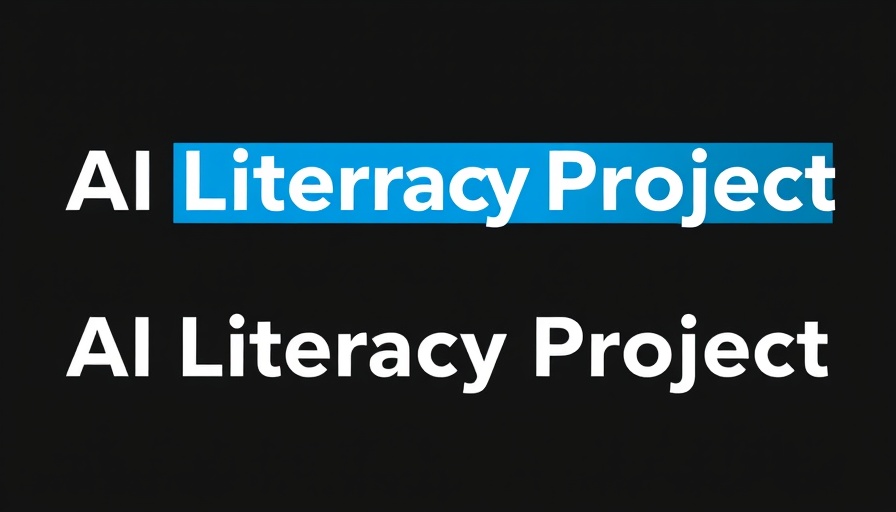
The Urgency of AI Education in Today’s World
The artificial intelligence revolution has emerged as an undeniable force, rapidly reshaping industries and altering the way we work. Yet, despite this accelerating pace, a substantial gap remains between the skills employees possess and the knowledge required to thrive in an AI-driven world. A staggering 94% of workers express a desire to improve their AI skills, but only a mere 5% of companies offer robust, scalable training. This disconnect is alarming, as highlighted by recent findings from the Marketing AI Institute that indicate 67% of professionals cite a lack of education and training as a critical barrier to AI adoption.
Introducing The AI Literacy Project
Understanding the pressing need for widespread AI literacy, SmarterX has launched The AI Literacy Project. Headed by Paul Roetzer, this initiative is designed to bridge the gap between the rapidly evolving AI landscape and the workforce’s preparedness to engage with it. The project aims to promote accessible AI education tailored to the unique needs of professionals across various industries—not limited to just marketing. Through a personalized approach, the initiative seeks to equip individuals and organizations with the knowledge and skills necessary to succeed in an AI-enhanced economy.
Three Pillars of The AI Literacy Project
The AI Literacy Project is grounded in three comprehensive pillars aimed at making AI education more accessible and impactful:
- Drive AI Understanding: Through affordable resources, the project aims to demystify artificial intelligence and make foundational knowledge available to all.
- Path to AI Mastery: Offering a variety of content, experiences, and events, the project not only facilitates learning but encourages mastery of AI capabilities.
- Personalized Learning Journeys: Recognizing that different professions have unique requirements, the initiative designs custom educational paths tailored to the individual’s career goals.
Roetzer’s vision emphasizes that achieving AI literacy is not merely a competitive advantage; it is becoming essential for career development in the modern workforce.
The Core Principles of AI Learning
The guiding principles of The AI Literacy Project focus on inclusivity and human-centered design, reinforcing the notion that AI should enhance, rather than replace, human jobs. Here’s a glimpse into these foundational beliefs:
- AI for Everyone: Commitment to making education either free or highly affordable.
- Human-Centered AI: A focus on tools that augment human intelligence and skills.
- Transparency and Openness: Sharing knowledge openly to foster a community of learning.
- Reskilling at Speed: Urgent upskilling programs to keep pace with rapid technological advancements.
These principles ensure that the learning generated through this project remains relevant and valuable in an ever-evolving job market.
Looking Ahead: The Phases of Implementation
Roetzer outlined a phased approach to implement the learning framework effectively. Currently, SmarterX is launching an AI Mastery Membership Program that provides access to a suite of AI courses previously sold individually. This first phase will lay the groundwork for further developmental stages that will expand educational offerings and reach a broader audience.
Final Thoughts: The Path to AI Proficiency
The AI Literacy Project is a crucial step towards preparing today’s professionals for a future dominated by artificial intelligence. By removing barriers to education and providing tailored pathways for skill development, the initiative aims to transform not only individual careers but the entire landscape of our workforce, ensuring that AI serves as a partner in creativity and innovation. For those keen on leveraging the vast potential of AI, an opportunity to optimize learning has arrived—embracing education has never been more vital.



Write A Comment